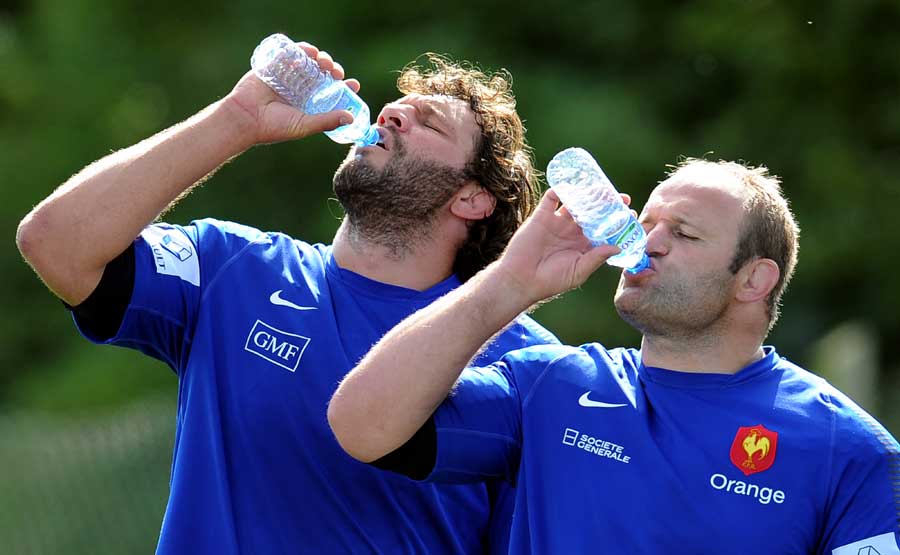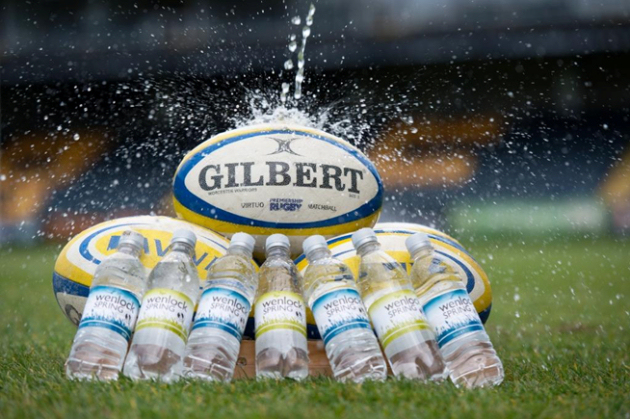As a very physical sport, Rugby requires that you maintain your body hydration whether you are playing or training.
In tropical countries such as Indonesia, it is especially important to pay attention to fluid intake when playing sports and even more so when playing very physical sports such as Rugby. The average yearly temperature in the coastal areas in Indonesia reach 28 degrees Celsius, lowering to an average 26 inland and 23 degrees in the highlands and mountainous regions. Add to this the average humidity level of 82% and you can see how important it is to always monitor your fluid intake when playing or training Rugby.

Here are a few tips on hydration so you can play safer and better Rugby:
- Our bodies consist of 82% water and our brain is 95% water which makes it the most abundant component in our bodies. When dehydration occurs, we not only reduce our physical but also our mental and cognitive performance as well. Maintaining adequate hydration makes us make the right decisions and play better Rugby on the field.
- When we are thirsty, we have already lost 1-2% of our bodily fluids! Make sure you drink water even when you are not thirsty.
- When training or playing Rugby, try to weigh in before and after. The aim is to make sure you weigh the same before and after games and training. In short periods of time, weight loss is due to loss of fluids and not fat so water intake is actually beneficial for physical performance and does not affect weight loss in the long run.
- A good and simple indicator of hydration is urine colour. In the morning, pay attention to the colour of the water you pass. If it is yellowish-brown then make sure to drink some water immediately. Clear urine colour indicates good hydration.
- Water and the body’s fluids carry glucose and oxygen to our muscles besides assisting digestion and helping to turn food into energy. Water also carries essential sodium and other minerals throughout our bodies. Dehydration can cause complications that eventually lead to illness.
- Eight glasses or 2.5 liters of water is the daily recommended water intake for the average adult male. When you are training or playing Rugby and sweat a lot then it is important to increase this intake. For the average adult female, 2 to 2.3 liters of daily water consumption is recommended.
- Hydration can reduce cramping when training and playing Rugby. The key is to pay attention not only to how much water you drink but when you drink it. If you are already dehydrated before training and games then you will be more likely to experience cramps during.
- Pay close attention to drink supplements you consume! Water is the best choice for hydration. You will flush out many added vitamins and electrolytes that are in “sports drinks” through urination. The high sugar contained in many drinks actually dehydrates your body. Avoid alcoholic and caffeinated drinks if you want to hydrate.
- Be aware of the weather when training or playing Rugby. Whatever the weather, always have an adequate supply of water on hand. When our bodies are conditioned to cooler temperatures like when it is raining, we often forget that it is still important to drink water.
- Pay attention to your bodies. Everyone’s is different and if you naturally perspire more than usual then you need to drink more water.

You play better Rugby and enjoy it more if you maintain good physical performance. Pay extra attention to hydration as well as your overall physical condition when training and playing Rugby.
